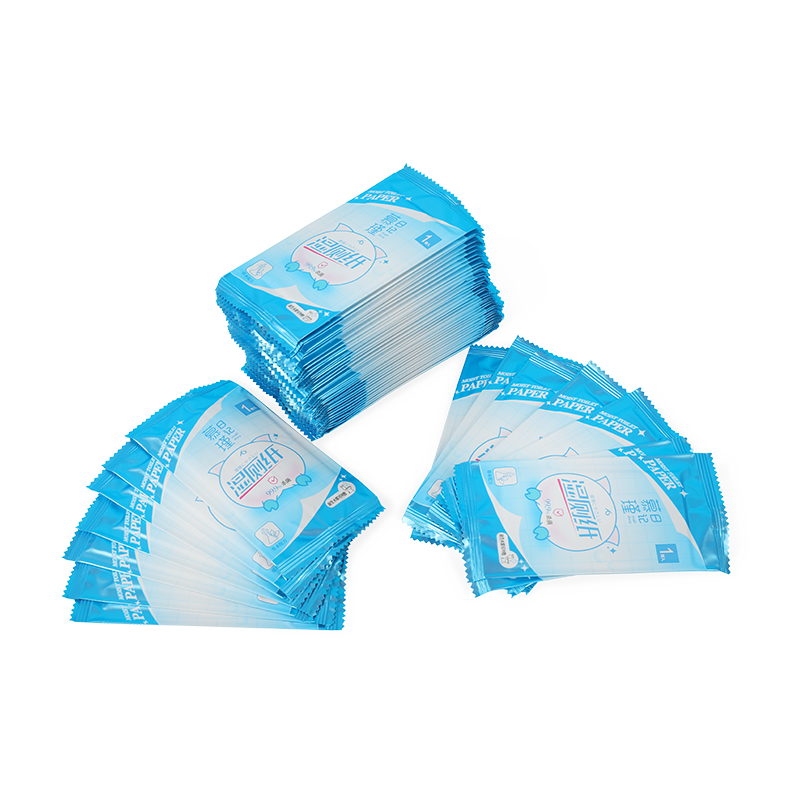Product Consultation
Your email address will not be published. Required fields are marked *
In today’s world, where personal hygiene and comfort are more important than ever, moist toilet tissue—also commonly known as wet wipes or flushable wipes—has emerged as a popular alternative or addition to traditional dry toilet paper. Whether used for enhanced cleanliness, sensitive skin, or convenience during travel, moist toilet tissue offers a gentle and effective cleaning option for people of all ages.
But what exactly is moist toilet tissue? How does it differ from regular toilet paper? And are there environmental or health concerns to be aware of?
Moist toilet tissue is a pre-moistened, disposable wipe designed for use after using the toilet. It combines soft nonwoven fabric with a mild cleansing solution, often including skin-soothing ingredients such as aloe vera, chamomile, or vitamin E.
Unlike regular dry toilet paper, moist toilet tissue offers:
Better residue removal
Refreshing feeling
Gentle care for sensitive skin
These wipes are typically sold in resealable packs or pop-up dispensers to maintain moisture and hygiene.
Moist wipes are more effective than dry paper in removing residual matter, ensuring a cleaner and fresher experience.
Infused with moisturizing agents and free from harsh chemicals, these wipes are ideal for people with sensitive skin, hemorrhoids, or post-surgical care.
Perfect for travel, camping, or on-the-go hygiene, moist toilet tissues are compact, easy to carry, and ready to use.
Many products include light fragrances or odor-neutralizing compounds that help reduce unpleasant smells.
From toddlers in potty training to seniors with mobility issues, moist toilet tissue is a practical hygiene tool for people at any life stage.

There are various types of moist toilet tissue based on use case, ingredients, and biodegradability:
Designed to break down quickly in water, these wipes claim to be safe for flushing. However, their environmental impact and plumbing safety remain debated.
Made from natural fibers like bamboo or plant cellulose, these wipes decompose more easily, reducing landfill waste.
Ideal for sensitive skin or those allergic to perfumes, these wipes use minimal ingredients and are often dermatologist-tested.
These are extra gentle and multipurpose—used not only for toileting but also for cleaning hands, face, or surfaces.
Packaged using recyclable or refillable materials to reduce plastic waste and carbon footprint.
Aloe Vera – for skin hydration and cooling
Witch Hazel – for mild anti-inflammatory effect
Glycerin – to retain moisture in the skin
Chamomile Extract – for soothing irritated skin
Vitamin E – for antioxidant skin protection
Alcohol – can dry and irritate skin
Parabens – potential hormone disruptors
Synthetic Fragrances – may cause allergic reactions
Formaldehyde-Releasing Preservatives – like DMDM Hydantoin
Polyester/Plastic Fibers – non-biodegradable and harmful to the environment
One of the most controversial aspects of moist toilet tissue is its impact on plumbing and the environment.
Many wipes marketed as “flushable” do not disintegrate quickly in water like toilet paper.
These wipes can clog household pipes, city sewage systems, and contribute to fatbergs (giant sewer blockages).
Look for certifications from third parties like Water UK, INDA, or EDANA that test flushability.
Choose biodegradable options that meet ASTM or EN compostability standards.
Avoid wipes with plastic content, as they do not break down in water or compost.
Brands are now moving toward recyclable, compostable, or refillable packaging to reduce plastic use.
In some countries, bidets are the primary means of cleaning after toilet use. Compared to bidets, moist toilet tissue offers:
| Feature | Moist Toilet Tissue | Bidet |
| Installation required | No | Yes |
| Portability | Easy to carry | Stationary |
| Eco-friendliness | (unless biodegradable) | Uses water, no waste |
| Skin sensitivity | Gentle | Very gentle |
| Cost over time | Medium | High initial, low long-term |
Takeaway: Both options have pros and cons. In combination, they can offer the highest level of hygiene and comfort.
The global moist toilet tissue market has seen steady growth, driven by:
Increased hygiene awareness
Urbanization and lifestyle changes
Growing demand for premium personal care products
Global Market Size (2024 est.): ~$3.5 Billion USD
CAGR (2024–2028): ~5.2%
Top Markets: USA, UK, Germany, Japan, China
Leading Brands: Cottonelle, Charmin, Andrex, Natracare, WaterWipes, DUDE Wipes
Brands are focusing on sustainability, dermatological testing, and custom scents to attract eco-conscious and health-aware consumers.
Do not flush non-certified wipes—even if labeled “flushable.”
Store packs in a cool, dry place to prevent drying out.
For sensitive skin, opt for unscented and alcohol-free variants.
Keep out of reach of young children, as they may pull out or ingest wipes.
Do not use for makeup removal or open wounds, unless specified.
Looking ahead, the industry is expected to focus on:
Improved flushability technology (fiber disintegration + plumbing safety)
Zero-plastic, biodegradable fabrics
Smart packaging with humidity-control features
Customized formulations for different age groups and conditions (e.g., postpartum, travel, elderly)
Moist toilet tissue has evolved from a luxury item into a mainstream hygiene product that offers enhanced cleanliness, comfort, and skin protection. While there are environmental and plumbing considerations, many brands are responding with biodegradable materials and smarter packaging.
Whether you're seeking improved personal hygiene, a better clean than toilet paper, or a travel-friendly alternative, moist toilet tissue can be a valuable addition to your daily routine—when used responsibly.
Your email address will not be published. Required fields are marked *
You can contact to me using this form.
Copyright © 2023 Shanghai Taicikang Industrial Co., Ltd. All Rights Reserved.
